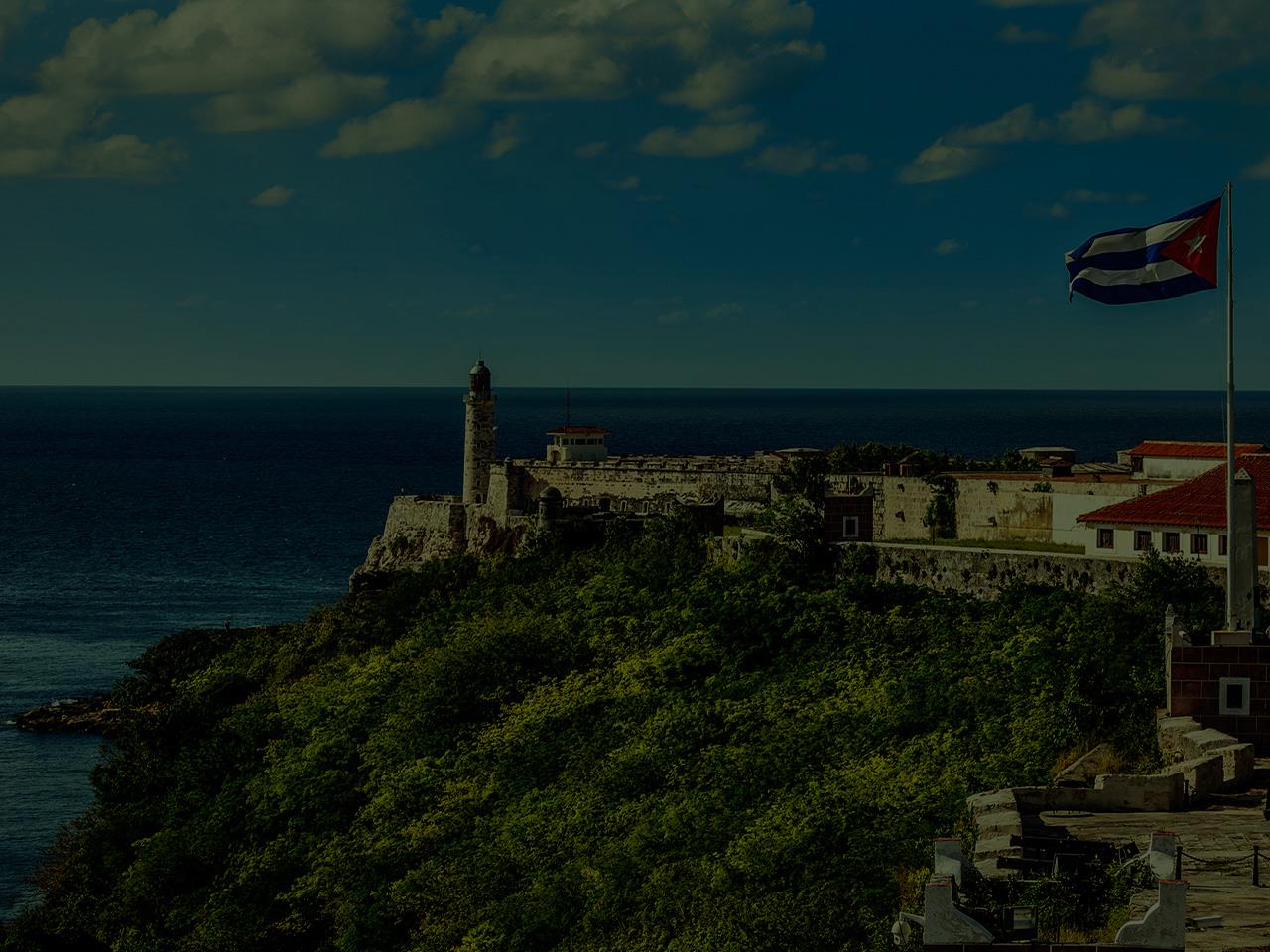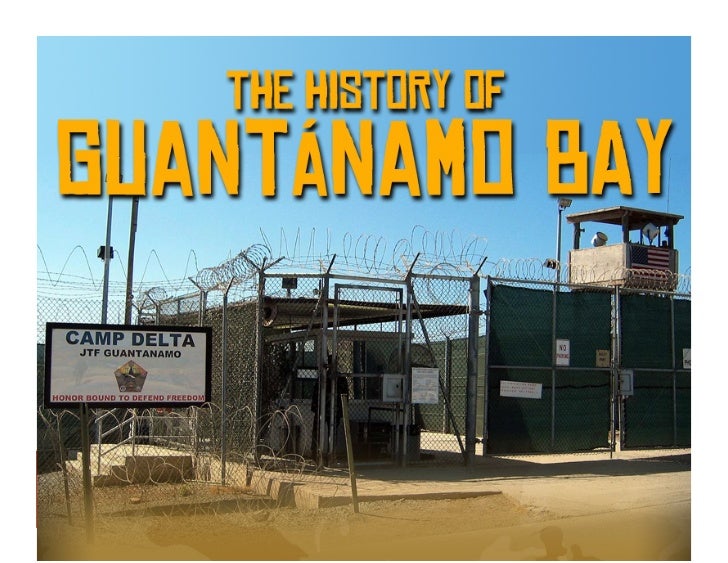Guantanamo Bay: A Complex History and Geography
Related Articles: Guantanamo Bay: A Complex History and Geography
Introduction
In this auspicious occasion, we are delighted to delve into the intriguing topic related to Guantanamo Bay: A Complex History and Geography. Let’s weave interesting information and offer fresh perspectives to the readers.
Table of Content
Guantanamo Bay: A Complex History and Geography

Guantanamo Bay, a small, geographically strategic piece of Cuban land, has become a potent symbol of international controversy and political complexities. Its history, intertwined with the United States’ relationship with Cuba, spans over a century, marked by both cooperation and conflict.
Understanding the Geography
Guantanamo Bay Naval Base, located on the southeastern coast of Cuba, occupies a 45-square-mile area. It is a deep-water harbor, strategically positioned at the entrance to the Caribbean Sea, making it a valuable asset for naval operations. The base’s unique status as leased territory, rather than US soil, adds a layer of legal and political complexity to its existence.
A Historical Overview
The history of Guantanamo Bay is deeply intertwined with the tumultuous relationship between the United States and Cuba.
- 1898: The US gained control of the area during the Spanish-American War, securing it as a coaling station for its navy.
- 1903: The two nations signed a lease agreement, granting the US perpetual rights to occupy the territory in exchange for an annual rent.
- 1959: Following the Cuban Revolution and Fidel Castro’s rise to power, relations between the two countries deteriorated, leading to a tense standoff.
- 2002: The US established a detention camp at Guantanamo Bay, housing individuals suspected of terrorism. This action sparked international condemnation and legal challenges, further escalating tensions.
The Detention Camp and its Implications
The establishment of the detention camp at Guantanamo Bay in 2002 transformed the base into a global focal point of controversy. The facility has been used to detain individuals suspected of terrorism, with detainees often held without trial for extended periods. This practice has been widely criticized by human rights organizations and international legal bodies, raising concerns about due process, torture, and the indefinite detention of individuals without charges.
The Ongoing Debate
The future of Guantanamo Bay remains uncertain, with ongoing debates surrounding its legal status, the treatment of detainees, and the potential for its closure. The US government has faced significant pressure from international organizations and domestic critics to shut down the detention camp, citing its human rights violations and the negative impact on US foreign relations. However, closing the facility remains a complex and politically charged issue, with strong opposition from some US political figures and a lack of consensus on alternative solutions.
Beyond the Detention Camp
While the detention camp has dominated the headlines, Guantanamo Bay remains a strategically important naval base for the US. It serves as a logistical hub for naval operations in the Caribbean region, providing crucial support for US military activities in the area. The base also hosts a significant number of US personnel and their families, contributing to the local economy and social fabric.
Exploring the Complexities
Guantanamo Bay’s history and current situation highlight the intricate interplay of geopolitics, international law, human rights, and national security. The base’s unique status as leased territory, coupled with its controversial use as a detention camp, has created a complex and multifaceted issue that continues to shape US foreign policy and international relations.
FAQs
Q: What is the legal status of Guantanamo Bay?
A: The legal status of Guantanamo Bay is complex and contested. The US claims perpetual rights to occupy the territory based on a lease agreement signed in 1903. However, Cuba maintains that the lease is invalid, citing the US’s violation of the agreement’s terms and the illegal nature of the detention camp.
Q: Why is Guantanamo Bay important to the US?
A: Guantanamo Bay is strategically important to the US for its location at the entrance to the Caribbean Sea, providing access to vital shipping lanes and offering a valuable base for naval operations in the region.
Q: What are the arguments for and against closing the detention camp at Guantanamo Bay?
A: Arguments for closing the camp include concerns about human rights violations, the negative impact on US foreign relations, and the high cost of maintaining the facility. Arguments against closure often focus on the need to detain suspected terrorists, the potential security risks of releasing detainees, and the political implications of closing a facility that has become a symbol of the US’s commitment to fighting terrorism.
Q: What are the potential consequences of closing the detention camp?
A: The consequences of closing the detention camp are difficult to predict and depend on the chosen alternative solutions. Potential consequences include the need to find new locations for detainees, the potential for legal challenges, and the potential for increased instability in the region.
Tips
- Stay informed: Follow news reports and academic research to stay updated on developments related to Guantanamo Bay.
- Engage in critical thinking: Consider multiple perspectives and analyze the arguments for and against different positions on the issue.
- Advocate for human rights: Support organizations working to protect the rights of detainees and promote accountability for human rights violations.
- Encourage dialogue: Engage in respectful conversations with others who have different viewpoints on the issue.
Conclusion
Guantanamo Bay remains a complex and controversial issue, reflecting the intricate challenges of US foreign policy, international law, and human rights. While the base’s strategic importance for US naval operations remains undeniable, the detention camp’s legacy of human rights violations and legal uncertainty casts a long shadow over its future. As the debate continues, finding solutions that address both security concerns and the need for justice and human rights remains a paramount goal.








Closure
Thus, we hope this article has provided valuable insights into Guantanamo Bay: A Complex History and Geography. We appreciate your attention to our article. See you in our next article!